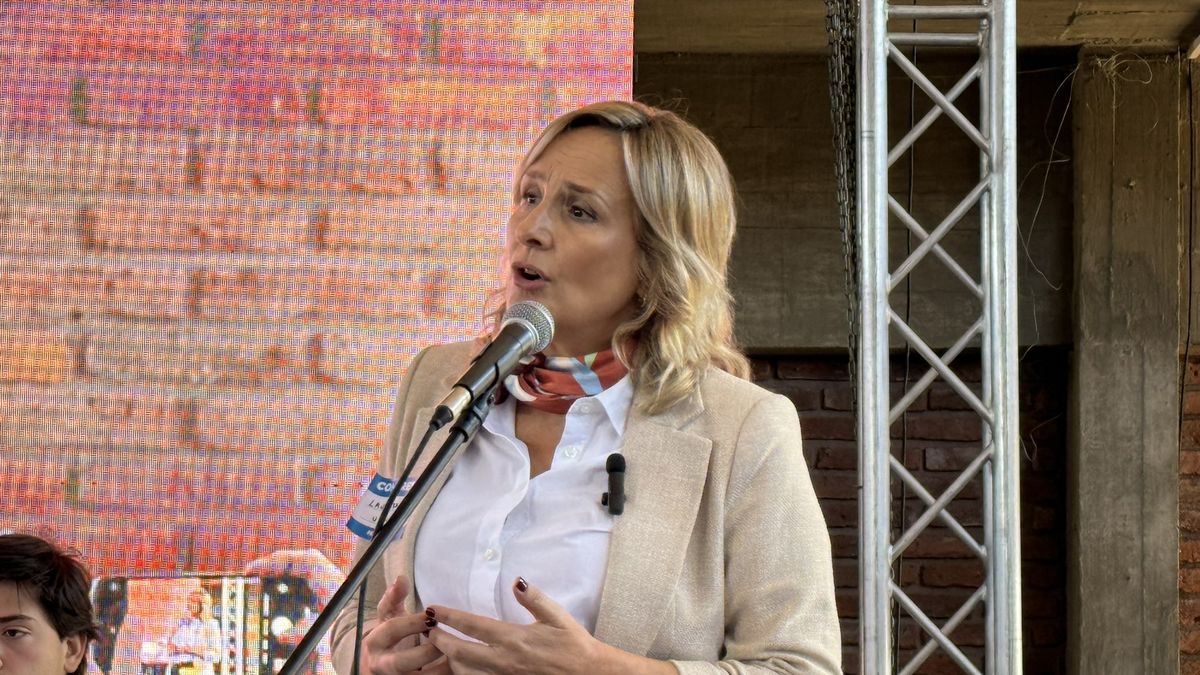The sector within the National Party (PN) presented during his National Congress of Herrerismo, a series of proposals, both economic and at the level of security within the country, which were presented to the presidential candidate Alvaro Delgado.
The event was held in the Galician Center of Montevideo, where the PN formula, made up of Delgado and Valeria Ripoll. There, the former vice-presidential candidate, Laura Raffo, as well as the senator Luis Alberto Heber They presented a series of proposals to the PN.
While Delgado’s former running mate focused her presentation on economic changes, the former Minister of the Interior referred to security in the Uruguay.
A more liberal economy and bureaucracy
The first of these refers to the “reduction of the country cost and cost of living through automatic liberalization of imports on all products that are already registered and marketed in the country.”
The measure specifies that personal hygiene products, agricultural supplies such as agrochemicals, glyphosate, which have long delays and overpricing, industrial and construction supplies, and fuel are the sectors that need price liberalization.
On the other hand, they presented the need for modernize labor relations through two new laws. One that calculates the hours worked weekly and not daily and the other that allows the splitting of leave without a minimum number of days. Meanwhile, they also proposed a secret vote for the election of union authorities and for voting on a strike and the suspension of wage councils for small companies or those with financial problems.
The third measure refers to the reduction of bureaucracy with single windows, deadlines that expire in favor of the person who initiates the procedure and approvals are automatic. Thus, they detailed two indications: the automatic approval of investment projects compared to the COMAP, with subsequent control after one year and the positive silence of the administration, that is, once the deadline for a procedure has expired, it is automatically approved.
Reduction of public spending and tax cuts
The other two main dishes presented by the Herrerism They have to do with the reduction of public spending and the considerable reduction of taxes for Uruguayan citizens, two measures that go hand in hand.
Regarding the first, they indicated six measures to carry out the reduction of public spending. The first is the merger of the BROU and the BHU with the aim of unifying administrative, logistics and branch areas. On the other hand, they proposed moving AFE to the Ministry of Transport, which currently subsidizes $15 million a year.
In addition, the unification of the operations of more than 10 entities dedicated to housing policy and which today concentrate a total of 1,800 officials. In addition to the transfer of the National Housing Agency to the Ministry of Housingwhich today receives a subsidy of 20 million dollars a year.
For their part, they proposed the union and merger of the operations of more than 11 entities that promote SMEs (dinapyme, ANDE, LATU, etc.) with more than 1,200 employees, as well as the transformation of The mail into a non-state public entity, which today receives an annual subsidy of 40 million dollars. Finally, they highlighted the need to centralize the administrative tasks of the State in order to reduce costs.
Regarding the reduction of taxes, they have two premises: the reduction of taxes on work through the reduction of contributions to make hiring employees cheaper and the priority in the reduction of Value Added Tax (VAT) to diesel, meaning that for every 1% reduction in central government operating expenses, 3% of VAT on diesel can be reduced.
Heber’s proposals
For his part, Heber expressed the agenda of citizen security of Herrerism and in that sense he proposed “to assist people who are homeless, but resolving the issue of coexistence.”
“People are being violent because they can’t stand people living in front of their business, doing their business. We have to go one step further. And we propose that Live on the street, “What is now a misdemeanor has become a crime, with community service penalties,” said the former Minister of the Interior.
He also pointed to deporting criminals from other countries. “Today there is a whole process that takes years to expel someone from the country. We believe that if someone comes to our country, commits a crime and is convicted, they should immediately be deported to their country of origin without the possibility of returning,” he said. Heber.
In his speech against foreign thieves, he said: “We are not willing to support people who come to commit crimes and teach crime here. I prefer to have here deported Uruguayans prisoners that sometimes have Colombians, Dominicans and Cubans.”
Source: Ambito




